Put down that bacon roll! It’s bad for your brain
Processed meat has been linked to an increased risk of dementia. So what foods should you eat or avoid?

A bacon roll may be off the menu after researchers suggested during the past week that eating as little as 25g of processed meat a day – equivalent to a single rasher – is associated with a 44 per cent increased risk of developing dementia.
It’s not the first time that meat has been associated with an increased risk of age-related cognitive decline but previous studies had failed to determine which types of meat might be more harmful than others.
“They had mostly investigated the consumption of total meat or just used the general term ‘meat’ rather than specifying meat types as we were able to do in our analysis,” says Huifeng Zhang from the University of Leeds who led the study, which used data from 500,000 people.

The study didn’t look at what it is about processed meats such as bacon, sausages and salami that is potentially damaging, but other researchers have suggested that nitrates, the chemicals used to cure processed meats, might affect the brain.
“It’s too early to say how much we should eat or avoid to keep the brain healthy but general healthy guidelines suggest eating less processed meat would be a sensible strategy,” Dr Zhang says.
It’s not the only dietary step you can take towards better brain health. Here’s what the experts recommend.
CHEESE CAN PROTECT YOUR MEMORY
In a recent study researchers from the University of Iowa looked at how specific foods influence brain function in later life. Cheese was found to be by far the most protective food against age-related cognitive problems.
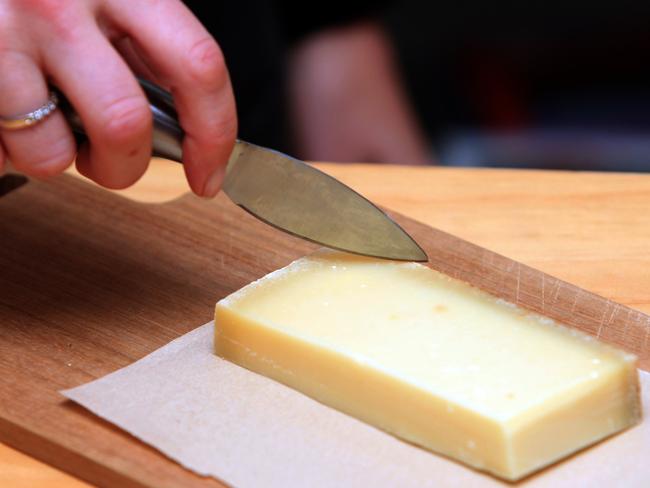
Of their findings, published in the Journal of Alzheimer’s Disease, Auriel Willette, an assistant professor in food science and human nutrition, says that she “was pleasantly surprised that our results suggest responsibly eating cheese” might be brain-protective.
A review of evidence published three years ago by Japanese researchers suggests that it is the mix of fatty acids and beneficial bacteria produced when some cheese is fermented – including brie, stilton, mature cheddar, parmesan and Gruyere – that “contribute to the prevention of dementia and cognitive decline”.
EATING LAMB ONCE A WEEK COULD BOOST YOUR BRAIN
Interestingly, although the recent Leeds University study found that eating processed meat was associated with an increased risk of dementia, it also found that people who consumed 50g a day of unprocessed and lean red meat, such as beef, veal or lamb, were 19 per cent less likely to develop dementia than non meat-eaters. In other words, some unprocessed meat might have a protective effect.
Dr Zhang believes that there are several possible reasons. “Red meat is rich in protein, and adequate protein intake has been associated with a reduced risk of dementia in some studies,” she says.
“There may be a link between higher protein intakes from meat eating and lower levels of beta-amyloid, the toxic protein found in the brains of people with Alzheimer’s disease. Red meat is also high in iron, and in animal studies iron intakes are linked to improved brain processing.”
And if you were to select a meat of choice? Ms Willette’s team found that weekly consumption of lamb was specifically related to improvements in cognitive function more than other meats, although her findings couldn’t explain why.

CURRY CAN BE GOOD FOR YOUR MEMORY
Good news for curry lovers. Turmeric, thanks to its active ingredient curcumin, is known to have anti-inflammatory and antioxidant properties and researchers at the University of California, Los Angeles (UCLA) have suggested that it might help to improve memory in people aged 50 to 90 with mild age-related memory loss.
For a study in The American Journal of Geriatric Psychiatry participants were randomly assigned to take either a placebo or 90mg of curcumin in supplement form twice daily for 18 months. Those who consumed the curcumin improved their performance in memory tests by 28 per cent over the course of the study, significantly more than the controls, and their brain scans showed significantly less of the markers for cognitive deterioration.
“Exactly how curcumin exerts its effects is not certain,” says Gary Small, the study’s author and director of geriatric psychiatry at UCLA’s Longevity Centre. “It may be due to its ability to reduce brain inflammation, which has been linked to both Alzheimer’s disease and major depression.”
HAZELNUTS, ARTICHOKES AND BROAD BEANS HELP TO SLOW COGNITIVE DECLINE
Most of us should eat more fibre in our daily diets – the goal is 30g a day but the average daily intake is 17g a day for women and 20g for men. This could help to reduce cognitive decline and memory loss as we age.
Researchers have shown that when bacteria ferment fibre in the gut they produce a fatty acid called butyrate that has been found to reduce tissue inflammation in the body, which is linked to cognitive decline with age.

Fibre – the best sources include linseed, rye bread, artichokes, hazelnuts and broad beans – has been associated with a lower risk of inflammation in the brain’s immune cells, or microglia, considered one of the leading causes of neurodegenerative diseases such as Alzheimer’s.
A GLASS OF WINE, ESPECIALLY RED, WILL BOOST BRAIN HEALTH
In the study at the University of Iowa a moderate daily consumption (no more than a single small glass) of alcohol including beer, cider, champagne and white wine was related to improvements in cognitive function with age, although red wine seems to have the best protective effect.
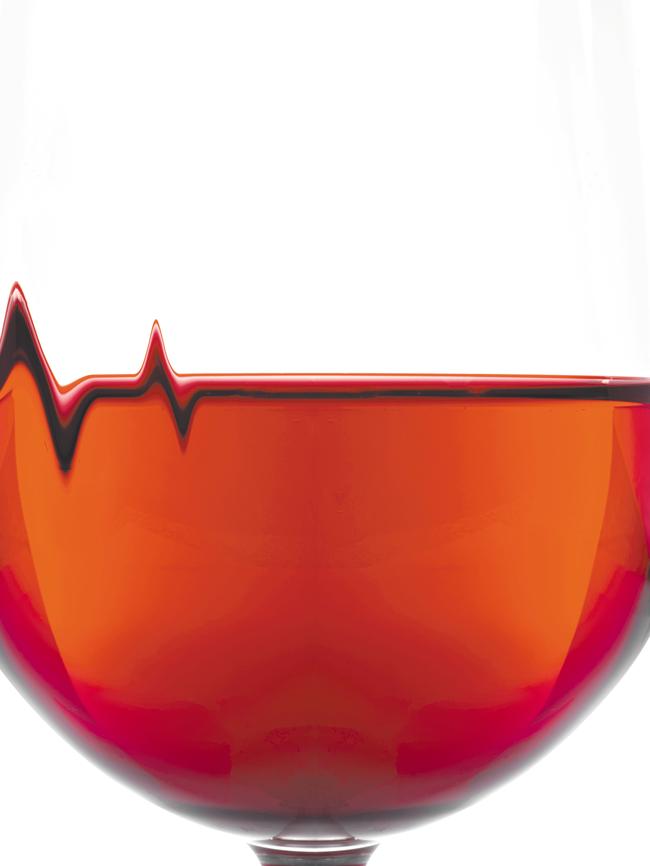
“Red wine’s high antioxidant content, which includes the antioxidant resveratrol, is the reason it has been shown to have some protective effects for the brain and offer some protection against Alzheimer’s disease and dementia,” says Ian Marber, a nutrition therapist and the author of Man Food. “Although you can get the same antioxidant benefits from drinking non-alcoholic red grape juice, so it is not an excuse to drink too much.”
COFFEE CAN REDUCE DEMENTIA RISK
Coffee – although not caffeine on its own – has a positive effect on brain health as we age. “Coffee contains a high amount of antioxidants and beneficial compounds, such as chlorogenic acids,” Marber says. “The same is not true of caffeinated drinks – it is only coffee itself that counts.”
Researchers have reported as much as a 65 per cent reduction in risk for late-life dementia among people who drink three to five cups of coffee a day from middle age onwards, compared with non-coffee drinkers. It is thought that compounds released during the coffee roasting process might provide a neuroprotective effect by curbing the damaging actions of toxic proteins associated with the development of Alzheimer’s disease.
THREE OR MORE CUPS OF BLACK OR GREEN TEA A DAY CAN CUT YOUR RISK OF DEMENTIA
Tea leaves are rich in flavonoids with anti-inflammatory properties that have been shown to help to maintain blood flow to the brain, offering protection against vascular dementia.
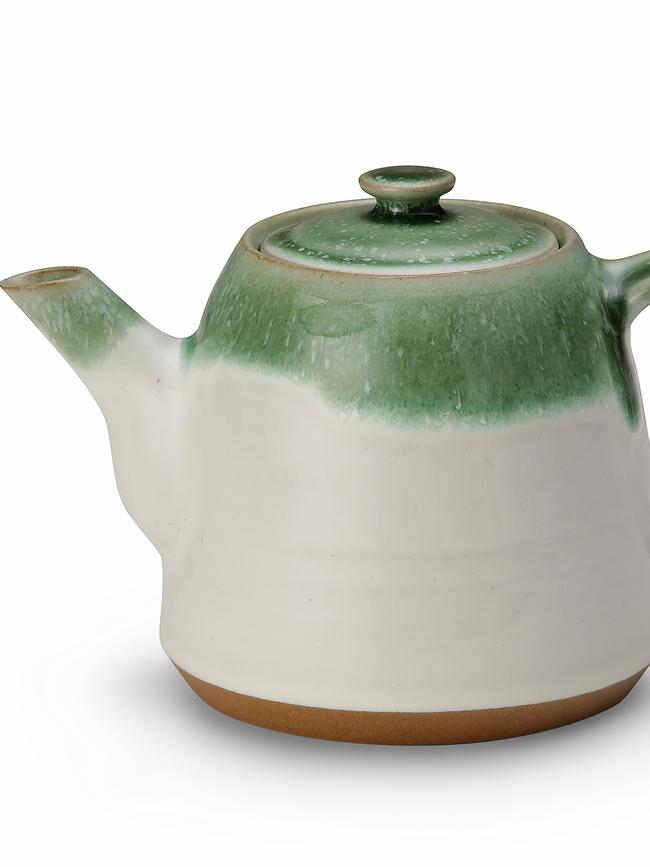
In 2017 research by assistant professor Feng Lei of the National University of Singapore’s department of psychological medicine showed that drinking at least one cup (preferably three or more) of green or black tea a day helped to cut the risk of dementia among older adults by 50 per cent.
A further study revealed that regular tea drinkers aged 60 and over had healthier cognitive function than non-tea drinkers.
EAT MORE NUTS AND SEEDS FOR BRAIN-BOOSTING OMEGA 3 FATTY ACID
We all know that oily fish is one of the best foods you can eat for brain health. This is down to the high amounts of beneficial omega 3 fats it contains – specifically EPA and DHA. But sardines, tuna and mackerel aren’t the only way to boost your intake: white fish and shellfish contain EPA and DHA while nuts and seeds, green leafy vegetables and nut and seed oils (including pumpkin and walnut oils) are valuable sources of another omega 3 fatty acid, alpha linolenic acid (ALA).
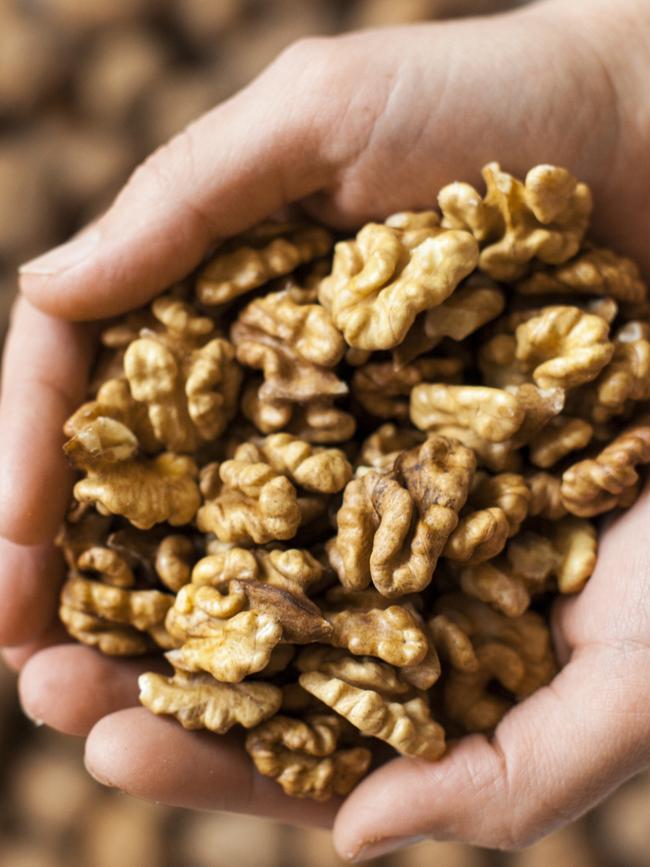
Marber says: “One study showed particular benefits when older people already diagnosed with dementia increased their consumption of omega 3-rich foods.”
BERRIES TWICE A WEEK TO LOWER RISK OF DEMENTIA
Blueberries, blackberries, raspberries and apples are rich in antioxidants and, according to scientists at Tufts University’s Human Nutrition Research Center on ageing in the US, eating more of them offers brain protection.
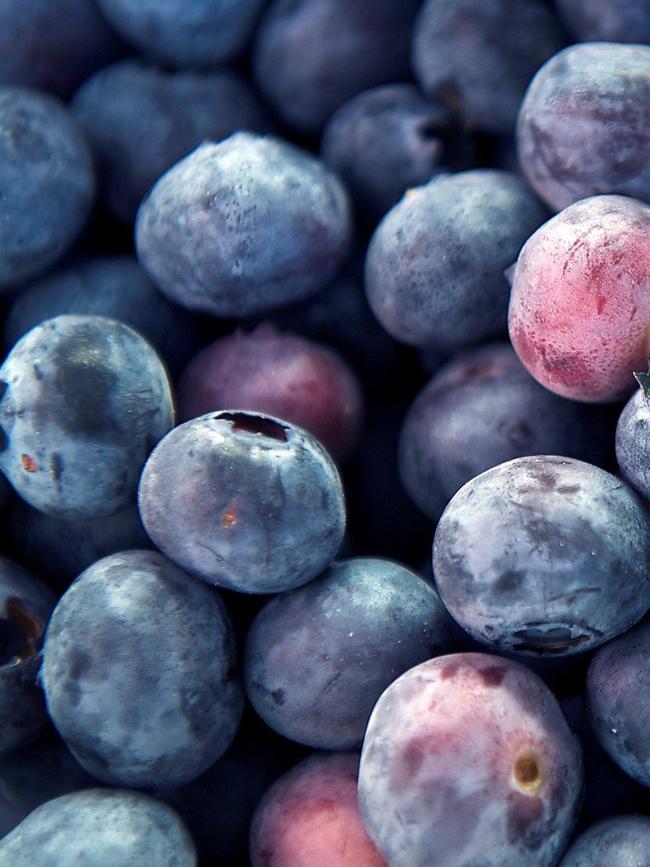
“Some berries two or three times a week would be adequate,” says the lead researcher, Esra Shishtar.
EAT A GOOD VARIETY OF VEGETABLES TO MAINTAIN COGNITIVE FUNCTION
Consume as great a variety of vegetables as you can to boost your intake of antioxidant plant flavanols is the advice from Thomas Holland, a researcher at Rush University’s College of Health Sciences in the US and the author of a 2020 paper that showed people with a high consumption of vegetables and other flavonoid-rich foods to be 48 per cent less likely to develop Alzheimer’s than those who ate the least over six years.
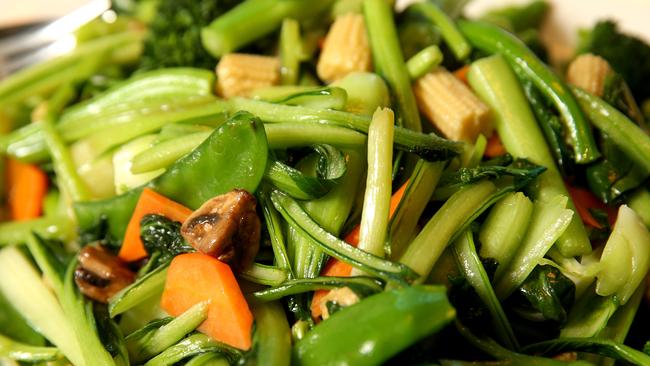
The Times



To join the conversation, please log in. Don't have an account? Register
Join the conversation, you are commenting as Logout